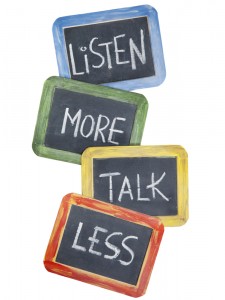“As I was walking to school this morning, I noticed people were lined up to four blocks waiting for the bank to open. The bank did not open for another two hours. Why do they do this?” -she asked our Spanish teacher.
“It is the beginning of the month,” the teacher replied, “those people get their salaries or government checks deposited in their accounts. They are there to withdraw their money…”
Another student interrupted, “What is up with you people using only use cash everywhere? It is so inconvenient and you get discounts when you use credit cards!”
“We don’t use credit cards because of the interest rates, although there are discounts, it ends up costing a lot more.”
“That’s not true! You don’t know how to manage your and save your money. It is like all the line ups everywhere you go. It does not make any sense that people need to make three different line ups at Mc Donald’s or some bars to buy ice cream or get a drink. One line to place your order, another to pay and another to get your ice cream or drink. Why do you need three people to do the job of one person? It is very frustrating for the customer and time consuming. How do you people want to compete with the rest of the world?”
Let’s say you go see one doctor, you tell him that your back has been hurting for quite some time now. This particular doctor gives a prescription for pain killers and sends you on your way. Now, suppose you decide to go see another doctor for the same problem. This doctor starts asking you all kinds of questions; do you work standing up or sitting down? He asks you to do a few movements to observe your daily habits. He sends you to have some x-rays taken. After analyzing all these results, he gives you a clear diagnosis of how the problem originated. He gives you a series of clear instructions and exercises that will fix the problem for good.
Which one will you be more likely to follow? Most probably the second one, right? He is the one who took the time to first understand where the problem came from and prescribed clear instructions to fix it.
The same is true in communicating. We often jump to give people a prescription without first seeking to understand the other person.
Unless people truly trust you and believe you understand them, they will not be very eager to be influenced by you.
She turned to him and in an empathetic tone replied: “You probably heard about the 2001 crisis in Argentina. One morning, we woke up and everything was taken away from us. People lost their jobs, the government dramatically cut on public-sector wages, pensions and a delay in pension benefits for over 1 million retirees and their families. Furthermore, unemployment rate sky rocked, their were no unemployment insurance or other social services, they had all been cut as well. The banks froze all our money, we were allowed to withdraw a small amount per month, not enough to live on. This led to a very high percentage of the poverty level.
We did everything to survive, we helped each other, we held “flee markets” where we would exchange goods with each other.
So many people were forced to leave their homes because they could no longer afford them. The population in the slum neighborhoods grew drastically.
I know it’s hard for you to understand, coming from a strong country,unless you lived it like we did, felt it, saw the hardship, you will never fully comprehend.
For us, having to do three line ups to get an ice cream, means that there are three people who have the opportunity to help support their families. Our economical situation is not stable, people fear that another crisis could happen at any time. They prefer having their cash money in their homes, under their mattresses than in the bank.”
When we judge others (in everyday life situations), we are portraying who WE really are.
It Demonstrates our frustration and annoyance with how everyone and everything around us are and our desire for them to be how we want them to be.
When we start to open our minds to the fact that certain behaviors are a build up of a person’s beliefs, up bringing or a difficult moment in their lives, we will accept that not everyone thinks and acts the way we do.
If you take the time to fully understand the person first, your approach will be filled with understanding and compassion. The trick is to ask questions and listen! They will feel that you are truly trying to help them and will be more receptive to what you have to say. In the process, you will learn so much, not only about the person, but on developing better relationships.
In the words of Paulo Coelho,






